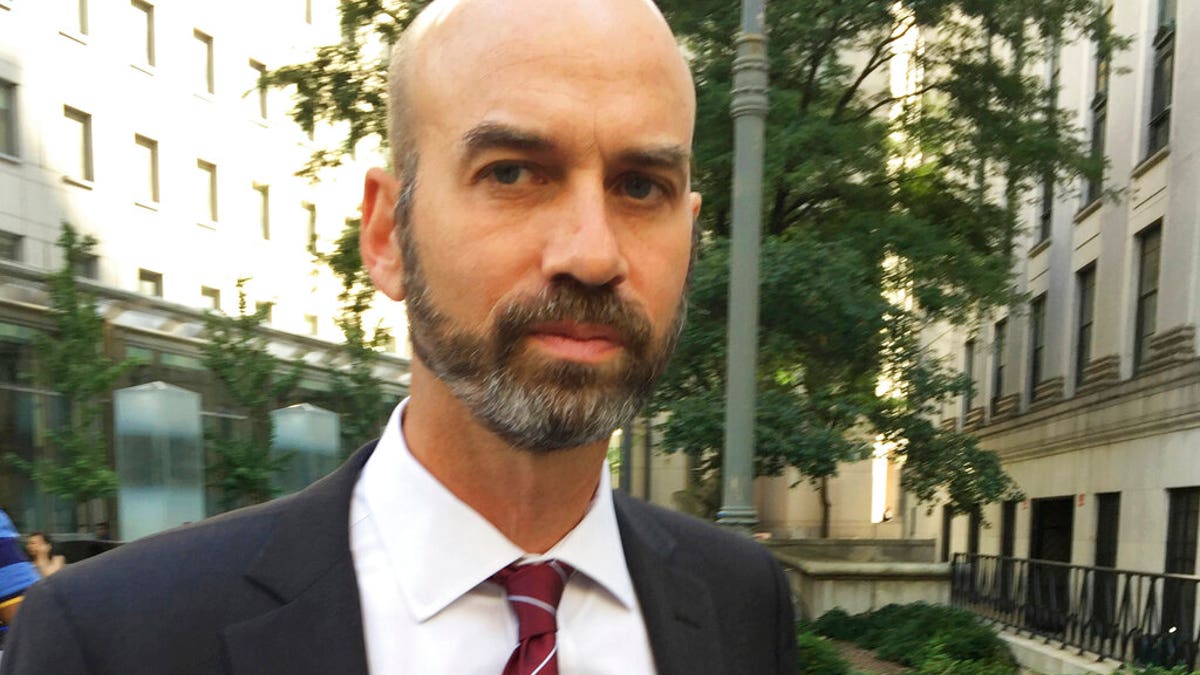New York Times editorial page editor resigns over Sen. Tom Cotton op-ed
Fox News media analyst Howard Kurtz on the changing face of media amid social shifts.
Washington Post media critic Erik Wemple offered a mea culpa for not defending ex-New York Times opinion editor James Bennet amid the uproar over the now-infamous Tom Cotton op-ed.
Bennet recently spoke out for the first time since his ousting in June 2020. Regarding Times publisher A.G. Sulzberger, he told Semafor, "None of that mattered, and none of it mattered to AG. When push came to shove at the end, he set me on fire and threw me in the garbage and used my reverence for the institution against me… This is why I was so bewildered for so long after I had what felt like all my colleagues treating me like an incompetent fascist."
"That may sound like the angst of a guy who’s still disgruntled at losing his job. And it is, for a compelling reason: Bennet is right," Wemple reacted. "He’s right about Sulzberger, he’s right about the Cotton op-ed, and he’s right about the lessons that linger from his tumultuous final days at the Times."

former New York Times opinion editor James Bennet resigned in 2020 amid the Tom Cotton op-ed fiasco. (Getty Images)
In the days of civil unrest following George Floyd's murder, Sen. Tom Cotton, R-Ark., penned a piece with the headline, "Send in the Troops," suggesting that the military should be deployed to quell the riots if such violence continued in cities across the country.
The piece sparked fierce backlash not just by liberals on Twitter but by New York Times employees, many of them claiming Cotton's piece "puts Black @NYT staff in danger." After initially defending the op-ed, the Times published a lengthy editor's note expressing regret for running the piece, saying it "fell short of our standards." Bennet later resigned.
"In initially sticking up for the Times’s role in publishing controversial fare, Sulzberger had it right. The paper had published an opinion by a U.S. senator (and possible presidential candidate) advocating for a lawful act by the president," Wemple wrote.

This Aug. 16, 2017, file photo shows James Bennet, editorial page editor of The New York Times, in New York. (AP Photo/Larry Neumeister)
Wemple knocked the Times staffers who labeled Cotton's op-ed a "danger," writing "It was an exercise in manipulative hyperbole brilliantly calibrated for immediate impact."
"The Erik Wemple Blog has asked about 30 Times staffers whether they still believe their ‘danger’ tweets and whether there was any merit in Bennet’s retort. Not one of them replied with an on-the-record defense. Such was the depth of conviction behind a central argument in l’affaire Cotton," Wemple wrote.
The Post media critic admitted he and journalists broadly mishandled the episode that resulted in Bennet's exit.
SEVERAL NEW YORK TIMES STAFFERS AGREED WITH BARI WEISS' SCATHING RESIGNATION LETTER, REPORT CLAIMS
"It’s also long past time to ask why more people who claim to uphold journalism and free expression — including, um, the Erik Wemple Blog — didn’t speak out then in Bennet’s defense. It’s because we were afraid to," Wemple wrote. "Our criticism of the Twitter outburst comes 875 days too late. Although the hollowness of the internal uproar against Bennet was immediately apparent, we responded with an evenhanded critique of the Times's flip-flop, not the unapologetic defense of journalism that the situation required."
"Our posture was one of cowardice and midcareer risk management. With that, we pile one more regret onto a controversy littered with them," Wemple added.

The New York Times publisher A.G. Sulzberger was accused by ex-opinion page editor James Bennet of setting him "on fire" and threw him "in the garbage" following the publishing of the Tom Cotton op-ed in 2020. ((Photo by Monica Schipper/Getty Images))
During his interview with Semafor, Bennet said Sulzberger "blew the opportunity to make clear that the New York Times doesn’t exist just to tell progressives how progressives should view reality," calling that a "huge mistake and a missed opportunity for him to show real strength."
"My regret is that editor’s note. My mistake there was trying to mollify people," Bennet told Semafor's Ben Smith.
CLICK HERE TO GET THE FOX NEWS APP
He later added, "I never apologized for publishing the piece and still don’t."
In response to Bennet's comments, a Times spokesperson told Wemple, "James is a talented journalist with deep integrity. We have great respect for him."




















